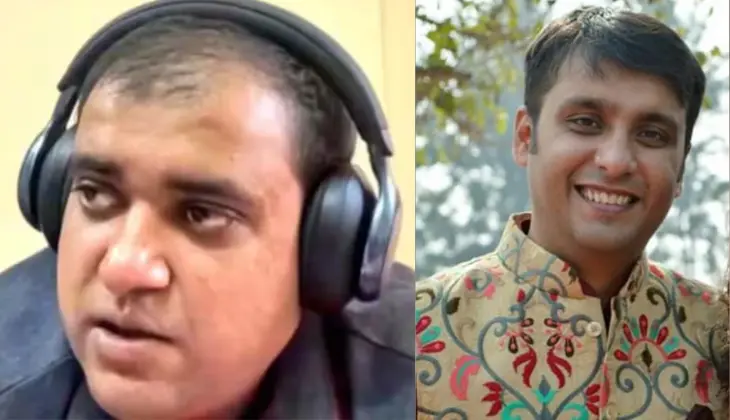Violence is a pervasive issue that affects individuals across the globe, leaving a lasting impact on their mental health and overall well-being. This article aims to explore the long-term effects of violence, including self-harm, sexually transmitted infections (STIs), substance abuse, dissociation, panic attacks, eating disorders, pregnancy, sleep disorders, suicide, and adult survivors of child sexual abuse. By understanding these effects, we can better comprehend the challenges faced by survivors and advocate for their support and healing.
1. Self-Harm: Coping Through Self-Injury
Self-harm, also known as self-injury, is a distressing behavior that individuals may resort to as a coping mechanism following experiences of violence. It involves deliberately inflicting physical harm on oneself, often in secrecy. Common methods of self-harm include cutting, burning, and hitting oneself. The act of self-harm provides a temporary release from emotional pain and a sense of control over one's body. However, it is crucial to address the underlying issues that drive individuals to engage in self-harming behaviors and provide them with appropriate support and therapeutic interventions.
2. Sexually Transmitted Infections: A Hidden Consequen
Sexual violence, a form of violence that affects many individuals, can lead to the transmission of sexually transmitted infections (STIs). When someone experiences sexual violence, whether it is through vaginal, anal, or oral contact, they are at risk of contracting bacterial or viral infections. These infections, such as chlamydia, gonorrhea, or HIV, not only pose immediate health risks but can also have long-term consequences if left untreated. It is essential for survivors of sexual violence to seek medical attention, undergo testing, and receive appropriate treatment to ensure their physical well-being.
3. Substance Abuse: Escaping the Pain
Experiencing violence can profoundly impact an individual's mental health, leading some to turn to substance abuse as a way to cope with their pain. Substance abuse refers to the excessive and harmful use of drugs or alcohol, often as a means of escaping traumatic memories or numbing emotional distress. It is crucial for individuals struggling with substance abuse to recognize the potential harm it can cause and seek professional help. Treatment options, such as counseling, therapy, and support groups, can aid in addressing the underlying trauma and promoting recovery.
4. Dissociation: A Defense Mechanism
Dissociation is a defense mechanism employed by the brain to cope with the trauma of sexual violence. It involves detaching from one's thoughts, feelings, or surroundings as a means of self-preservation. Survivors may experience dissociative episodes during or after a traumatic event, feeling disconnected from their own identity or as if they are observing themselves from a distance. While dissociation can provide temporary relief from overwhelming emotions, it can also interfere with daily functioning. Therapy, including trauma-focused approaches, can help survivors manage dissociation and regain a sense of stability.
5. Panic Attacks: Overwhelming Fear and Anxiety
Panic attacks are sudden and intense episodes of fear and anxiety, often occurring without any immediate danger present. Individuals who have experienced trauma, abuse, or high levels of stress are particularly susceptible to panic attacks. These episodes can be debilitating, leading to symptoms such as rapid heartbeat, shortness of breath, chest pain, and a sense of impending doom. Survivors of violence may fear future incidents or struggle with triggers that remind them of their traumatic experiences. Psychotherapy, medication, and self-help techniques can assist individuals in managing and reducing the frequency and severity of panic attacks.
6. Eating Disorders: Distorted Body Image and Control Issues
Sexual violence can profoundly impact survivors' perception of their bodies and their sense of control. Eating disorders, such as anorexia nervosa, bulimia nervosa, or binge-eating disorder, may arise as individuals attempt to regain a sense of control over their bodies or cope with feelings of shame and guilt. These disorders involve unhealthy relationships with food, body image, and eating behaviors. It is essential to address the underlying trauma and provide specialized treatment, including therapy and nutritional counseling, to support individuals on their path to recovery.
7. Pregnancy: The Impact of Sexual Violence
Survivors of sexual violence may experience significant concerns regarding pregnancy resulting from the assault. It is crucial to acknowledge their fears and provide them with accurate information and support. Emergency contraception, such as the morning-after pill, can help prevent unwanted pregnancies if taken within a specific time frame. Additionally, survivors may benefit from medical examinations, counseling, and guidance on options such as termination, adoption, or parenting. Compassionate care and access to comprehensive reproductive healthcare services are crucial for survivors navigating the complex aftermath of sexual violence.
8. Sleep Disorders: Disrupted Rest and Recovery
Experiencing violence can disrupt an individual's sleep patterns, leading to sleep disorders. Symptoms may include difficulty falling or staying asleep, sleeping at unusual times of the day, or sleeping for longer or shorter durations than usual. Sleep disturbances can exacerbate existing mental health issues and hinder the healing process. Establishing a consistent sleep routine, creating a calming sleep environment, and seeking professional help, such as cognitive-behavioral therapy for insomnia (CBT-I), can aid survivors in improving their sleep quality and overall well-being.
9. Suicide: Preventable and Supportive Resources
The trauma of violence can sometimes lead individuals to contemplate suicide. It is crucial to emphasize that suicidal thoughts are not permanent and that help is available. Suicide prevention resources, such as helplines, crisis centers, and support groups, can provide immediate assistance and support for those in crisis. Mental health professionals, trained in trauma-informed care, can work collaboratively with survivors to develop safety plans and provide ongoing therapeutic support. By raising awareness about suicide prevention and reducing the stigma surrounding mental health, we can save lives and support survivors on their healing journey.
10. Adult Survivors of Child Sexual Abuse: Navigating Complex Trauma
Child sexual abuse is a traumatic experience that can have long-lasting effects on survivors, even into adulthood. Many perpetrators of sexual abuse are individuals in positions of trust, such as family members, teachers, clergy members, coaches, or even other children like older siblings. Adult survivors of child sexual abuse may struggle with guilt, shame, and trust issues. Therapeutic interventions, such as trauma-focused therapy and support groups, can assist survivors in processing their experiences, developing coping strategies, and rebuilding their lives.
Conclusion
The long-term effects of violence on mental health and well-being are significant and require comprehensive support and intervention. By recognizing the various ways violence can impact survivors, we can work towards creating a society that prioritizes their healing and resilience. Through education, awareness, and access to appropriate resources, we can empower survivors to reclaim their lives and foster a future free from violence.
At Solh, we recognize the significance of mental health, which is why we've curated a range of powerful self-help tools designed to enhance your mental well-being. Our offerings include journaling, goal setting, self-assessment tests, mood analysis, and an extensive library of enriching content for you to explore and learn from. Take charge of your journey towards personal growth and improved mental health with our comprehensive self-help resources.



